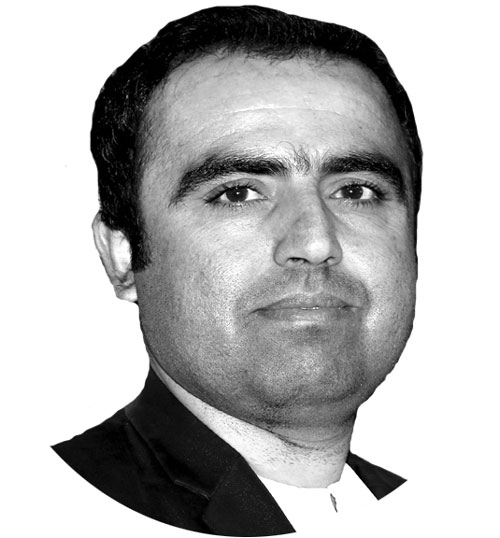Dost Muhammad Barrech
THE economic, political and cultural ramifications of the Coronavirus pan demic are long-lasting. The pandemic is prognosticated to be altering the outlook of the interstate relations. COVID-19, ostensibly, has triggered the race of ‘vaccine nationalism’ across the globe. Instrumentalization of the vaccine in coming years will remain an effective tool in the foreign policy of the many developed states. India, meanwhile, attempts to grab this opportunity in South Asia. India is well-known as the pharmacy of the world, producing the world’s largest generic medicines. New Delhi fulfils the globe’s 62% demand for vaccines. India amid COVID-19 remained an epicentre of the world’s attention for the demand of hydroxychloroquine from more than 100 countries. Hydroxychloroquine is believed to be helping in the treatment of COVID-19. New Delhi, at current juncture, leaves no stone unturned to exploit its pharmacy industry in this month has initiated the world’s largest COVID-19 vaccination drive for the purpose of promoting vaccine diplomacy in South Asia.
Since Modi assumed charge for the second term as the Prime Minister of the country, became over-confident, reckless and belligerent his misdemeanour resulted in Indian relative decline in its influence in the region and relationships in neighbourhood witnessed an increasing deterioration. India after the US has largest confirmed COVID-19 cases turned into the fastest and largest contracting economy of the world in 2020. New Delhi now is committed to improving its tarnished image through vaccine diplomacy, bolsters its “neighbourhood first” policy. Neighbouring countries remain a top priority of Modi’s foreign policy. Provision of vaccines to these countries is the lucid manifestation of his “neighbourhood first” policy. Bangladesh, Bhutan and Maldives have received Indian free vaccine doses. Indian Ministry of External Affairs in a press release maintained, “In respect of Sri Lanka, Afghanistan and Mauritius, we are awaiting their confirmation of necessary regulatory clearances”.
Nepal, a next-door neighbour of India, conceives to be living under the shadow of India, has received special leverage from Modi’s government by dispatching one million doses of AstraZeneca vaccine, attributed to improving strained relations on account of territorial disputes and minimizing China’s growing foothold in Nepal. Indian vaccines, by and large, have proved instrumental as far as winning hearts and minds of the people of Nepal is concerned. Hridayesh Tripath, Nepal’s Minister of Health articulates, “The government of India has shown goodwill by providing the vaccine in the grant. This is at the people’s level; it is the public who are suffering the most from COVID-19,” Modi’s vaccination campaign is aimed at countering China’s growing clout in South Asia. India is unmatchable with China in the region. Beijing’s construction of roads, railways and power stations under Belt and Road Initiative BRI in Bangladesh, Maldives and Nepal reduce Indian influence significantly. Modi views the vaccine campaign at crunch time of the pandemic as an instrumental tool to stimulate neighbouring countries towards India. Currently, the vaccine is more important than other investments in the region, it plays a catalyst role for the revival of the tourist industries of the regional countries.
Prior to Indian vaccine diplomacy, China initiated “test-kit diplomacy” supplied test kits and medical equipment designed to bolster its soft image in South Asia. China is likely to espouse the trajectory of India by providing a coronavirus vaccine in the region. As stated by Pakistan’s Foreign Minister Shah Mehmood Qureshi, “I want to give the nation the good news that China has promised to provide 500,000 doses of vaccine to Pakistan by January 31.” The statement of Qureshi was authenticated by the Chinese Foreign Ministry spokesperson Hua Chunying, in a press briefing held on 22 January 2021, which said, “In order to support our brothers and sisters in Pakistan, the Chinese government has decided to provide a batch of vaccines as aid and will actively coordinate with the relevant Chinese enterprise to speed up the export of vaccines to Pakistan.” However, researchers are concerned about the side-effects of the Indian vaccine. According to a survey conducted by New Delhi-based online platform Local Circles, within India approximately 62% of 17,000 respondents were unwilling to get vaccinated worrying over possible adverse reactions. While Indian researchers are also sceptical of the vaccine diplomacy race as the country will struggle to produce sufficient doses rapidly to minimize its own outbreak under control. Modi appears to have made a hasty decision of launching vaccine diplomacy to restrain China’s influence in the region.
Meanwhile, India is embroiled in territorial disputes with many of its neighbours. In the last 72 years, New Delhi has only resolved border issues with Bangladesh and Sri Lanka. The un-demarcated of boundaries with China, Pakistan, Bhutan and Myanmar increases tensions with neighbouring countries. Arguably, Indian neighbouring countries tilt towards China as Beijing has more political and economic influence than that of New Delhi. Modi’s vaccine diplomacy somewhat amid COVID-19 will cement his “neighbourhood first” policy. But the state in international politics never compromises on territorial issues. Niccolò Machiavelli rightly says one can forget revenge for the act of killing one’s father by another but one can never compromise on one’s land/property. Modi’s wishful thinking of resolving Indian territorial disputes and other outstanding issues with neighbouring countries via vaccine diplomacy is unlikely to reach a desired goal; it is simply out of the question.
—The writer is a Research Associate at India Study Centre, Institute of Strategic Studies Islamabad.










